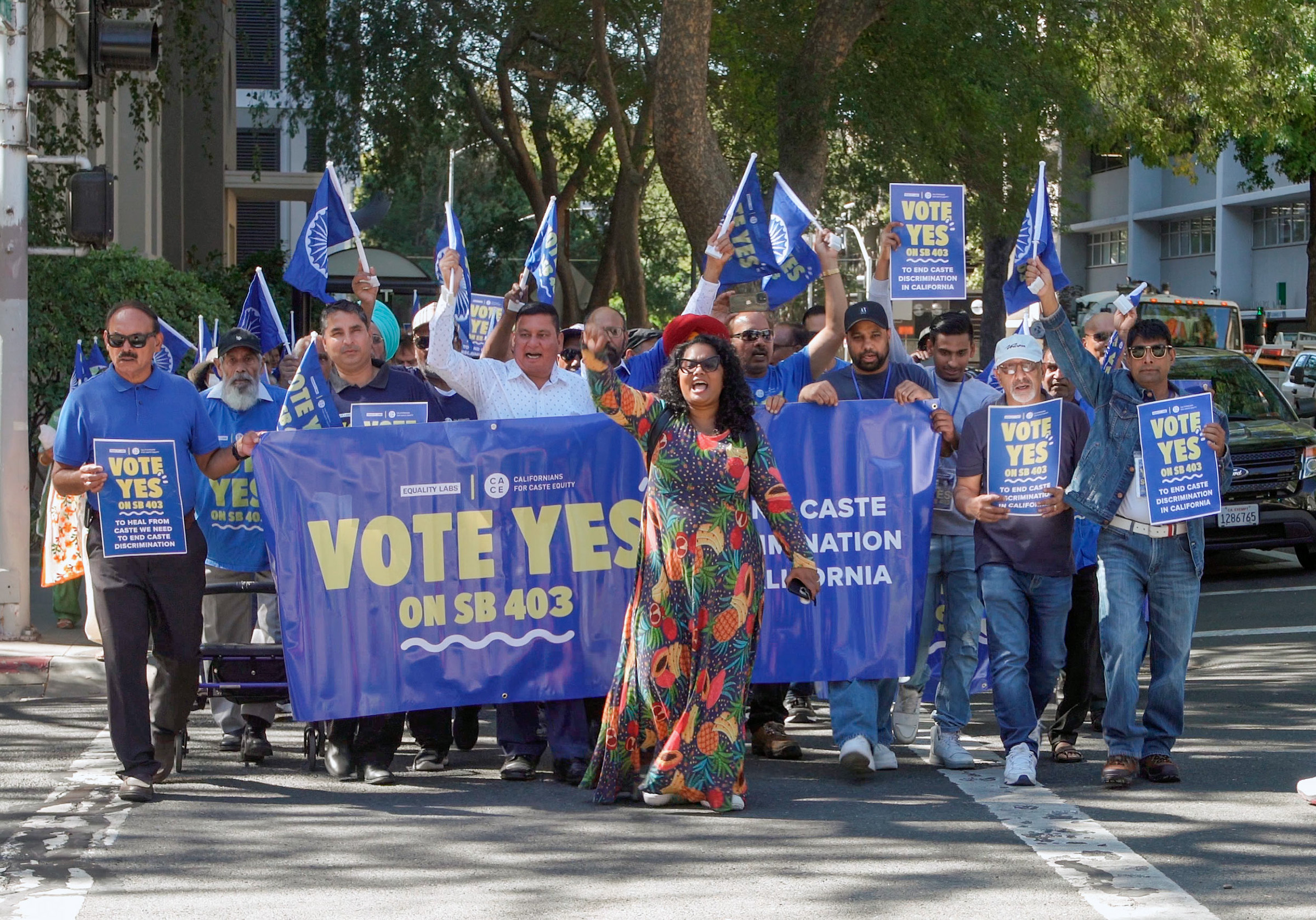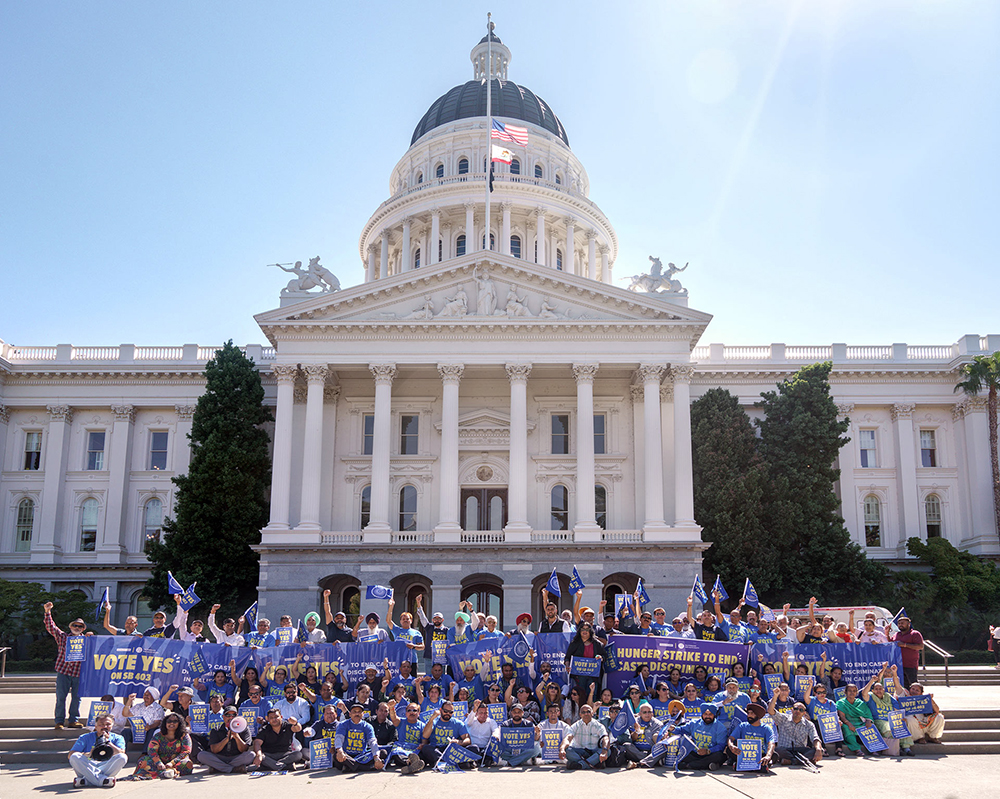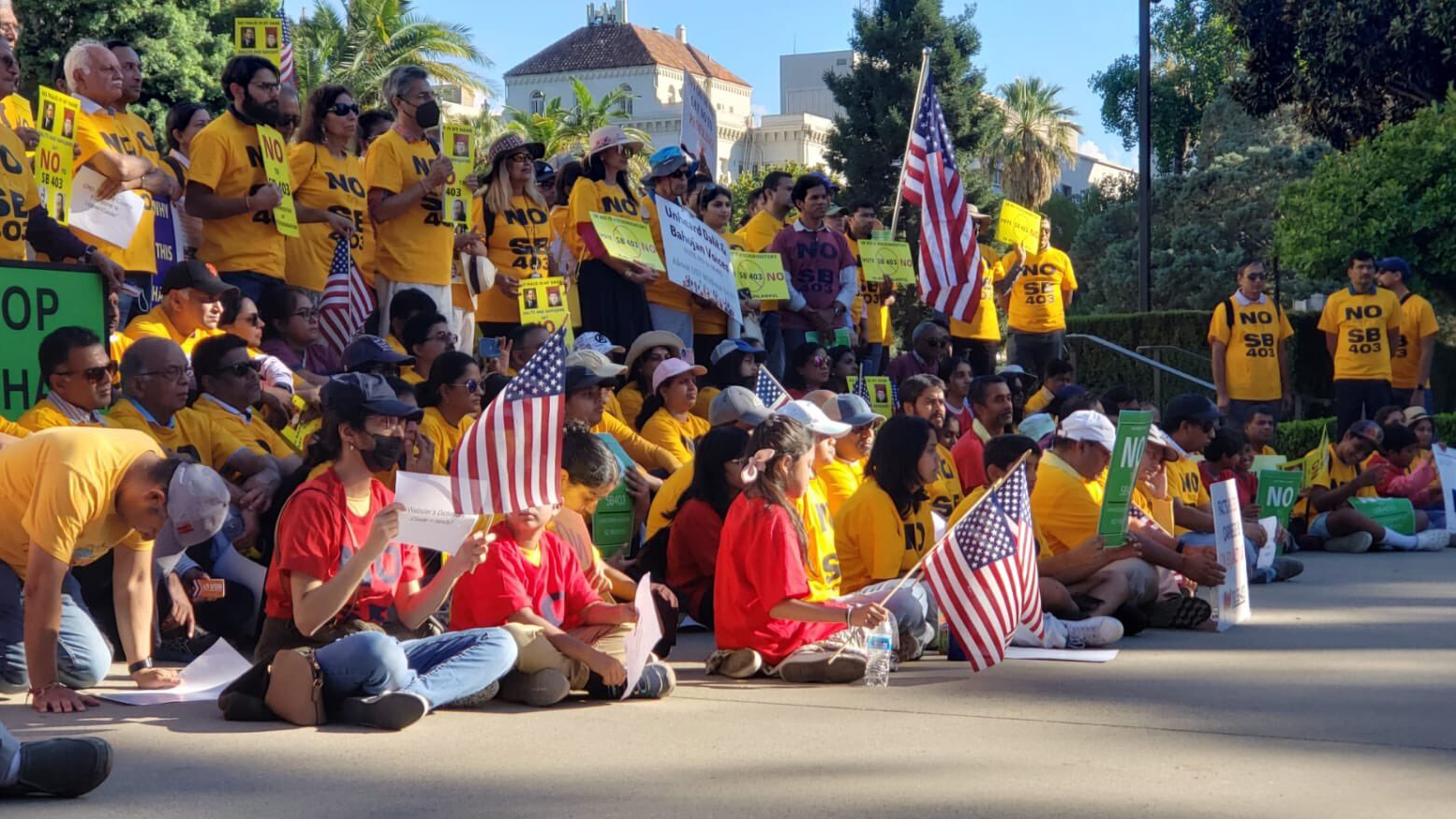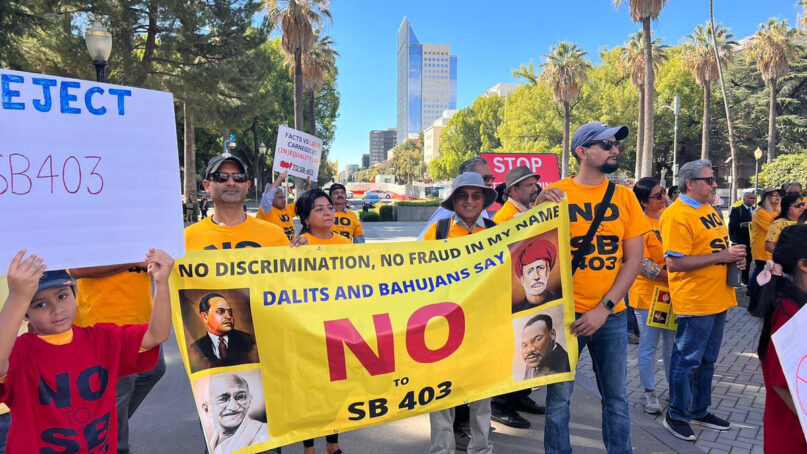(RNS) — On Saturday (Oct. 7), California Gov. Gavin Newsom vetoed a bill intended to outlaw discrimination on the basis of ancestry, adding a definition of caste to the list of protected categories under California’s existing civil rights laws.
“In California, we believe everyone deserves to be treated with dignity and respect, no matter who they are, where they come from, who they love, or where they live,” said Newsom in his veto statement, calling the bill “unnecessary” because existing civil rights law prohibits discrimination based on race, religion, ancestry, national origin and other characteristics.
The veto appeared to end — for now — a debate that has raged at least since February, when state Sen. Aisha Wahab, a Muslim who represents Fresno, introduced the measure, Senate Bill 403, eliciting fierce opposition from Hindus who claimed it would increase discrimination against their entire community. Other Hindus rallied just as passionately in support of the bill: Newsom’s veto ended a hunger strike by activists hoping to put pressure on him to sign it.
But both sides say the fight over SB403 has just begun, and as for the veto, Hindus on both sides count the moment as a win.
“SB-403 forced our community to find its voice,” said Suhag Shukla, executive director of the Hindu American Foundation, which led the opposition to the bill, in the group’s press release. “We’re grateful to Hindu Americans across the state who have shown tremendous resilience and to our allies for coming together like never before.”
Meanwhile, the group Californians for Caste Equity, founded to support Wahab’s bill, said that despite Newsom’s veto, it has also come out of the fight stronger.
“With the caste equity movement being flanked by so many civil rights leaders, we will play an even bigger role in the future of American politics and democracy,” said Sarita Sagar, deputy director of Equality Labs, one of the coalition’s constituent groups, whose members were in day 30 of their hunger strike when Newsom’s veto was announced.

Thenmozhi Soundararajan, center, leads a groups of demonstrators marching in favor of SB403 in Sacramento, California, Sept. 11, 2023. Photo courtesy of Equality Labs
“Our progress is the direct result of the passion, dedication, and hard work of our caste-oppressed community members,” the group tweeted.
SB403 was supposed to be the culmination to a surge of bans on caste discrimination across the country in the past few years. First universities and colleges such as Brandeis and Barnard added caste to their anti-discrimination policies; last year the California State University did so for its 23 campuses. Apple since became the first company to update its employee conduct policy to explicitly prohibit caste-based discrimination.
In February this year, Seattle banned caste discrimination and in late September, the city of Fresno, California, followed suit, adding caste and indigeneity — the identity of Indigenous people — under municipal law.
The trend has made some Hindu Americans uneasy, as they argued that South Asians, particularly Indian Hindus, have long been unfairly associated with a caste hierarchy. Many said that caste is not integral to Hinduism itself and that the practice, which can dictate social status based on one’s birth, had been left behind when they or their families had come to the United States.
By last month, when SB403 cleared California’s Assembly and headed for Newsom’s desk, hundreds of Californians and others marched outside the governor’s office, many bearing placards reading “About Us, Without Us,” to discourage him from signing the bill into law.
In the years after the tragedy of 9/11, the main concern of Hindu, Sikh and other South Asian Americans was the sometimes dangerous ignorance of their neighbors, and Hindu advocacy organizations of the time concentrated on educating Americans about the Hindus’ real identities and goals.
Since then, the Hindu American population has grown by more than 2 million, and the once inward-looking community has broadened its participation in local and national politics.
“There was a time just a few years ago when the priorities of Hindu Americans in voting for a candidate were based on bread-and-butter issues such as health care and Social Security, and immigration,” said Ria Chakrabarty, policy director for the organization Hindus for Human Rights, a 4-year-old advocacy group that was part of the pro-SB403 coalition.

Supporters of SB403 rally at the California Capitol, Sept. 11, 2023, in Sacramento. Photo courtesy of Equality Labs
“As the Hindu American community grows, it brings with it the complicated dynamics of the countries they came from, including caste and Hindu nationalism,” she added. “And these issues have become important political issues for democratic participation.”
In 2013 Tulsi Gabbard, a Democrat at the time, was elected the first Hindu member of Congress. Four years later, Ro Khanna and Raja Krishnamoorthi, both Democrats, joined her. Eight total members of Congress have been either practicing Hindus or born into Hindu families but adhering to other religions.
In 2019, Indian Americans filled NRG Stadium in Houston to greet a visiting Narendra Modi, the prime minister of India, with then-President Donald Trump in attendance, demonstrating the power of the Hindu American vote. This year, Vivek Ramaswamy became the first Hindu to run a major Republican campaign for president.
The Coalition of Hindus of North America, a relatively new Hindu advocacy organization, held its second annual Hindu Advocacy Day on Capitol Hill in July, hoping to highlight the issues that Hindu Americans face, from “narratives that portray Hinduism in a pejorative manner” to rising anti-Hindu sentiments, or Hinduphobia.
“Grassroots organizing and active civic engagement is critical in a thriving democracy and to ensure the Hindu community’s interests are represented in an impactful manner,” said Nikunj Trivedi, CoHNA’s president, who added that the group’s ultimate goal is to empower Hindus to run for office at all levels.

People demonstrate against SB403 during a rally outside the California Capitol in Sacramento, Sept. 9, 2023. Photo courtesy of CoHNA
CoHNA applauded the way Hindu Americans helped to defeat the caste discrimination bill in California with months of phone calls, emails and letters, exhibiting its power in a way it had never done before.
“This is a culmination of the efforts of the entire Hindu American community, and the hundreds of organizations, temples, businesses, and allies that fought against profiling,” CoHNA tweeted. “Proof that if we unite and take action, nothing is impossible.”
Samir Kalra, co-founder of the Hindu American Foundation, said it is “now more critical than ever” for the Hindu American community to be civically engaged, acquainting policymakers with the tenets of the Hindu faith, spearheading voter registration drives or simply coming out to protest.
“Such participation is the best way to ensure that the issues and concerns of the Hindu American community are taken seriously and receive the attention they deserve,” he said.





